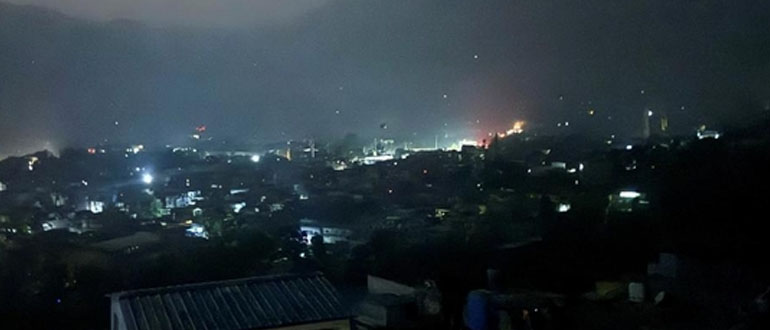Srinagar | WTNS | May 10:The Pahalgam tragedy, a gruesome attack that has shaken the peaceful veneer of Kashmir, marks another dark chapter in the region’s tumultuous history. With the death toll continuing to rise, the Indian government’s response has been swift, echoing a national resolve to counter threats to sovereignty and security.
By Agha Syed Amin Musvi | Wilayat Times Kashmir Bureau
Srinagar:The Pahalgam tragedy, a gruesome attack that has shaken the peaceful veneer of Kashmir, marks another dark chapter in the region’s tumultuous history. With the death toll continuing to rise, the Indian government’s response has been swift, echoing a national resolve to counter threats to sovereignty and security.
The Pahalgam Tragedy: A Valley’s Darkest Hour
The quiet town of Pahalgam, renowned for its serene beauty and as a gateway for tourists, was thrust into chaos on May 7, 2025, when a deadly ambush targeted innocent civilian, killing over 30 people, mostly Hindus. The attack, attributed to Pakistan-based militants, has sent shockwaves through the Kashmir Valley, bringing back memories of similar attacks that have scarred the region over the past decades.
This latest assault is not an isolated incident but a part of a broader pattern of cross-border violence that has perpetually destabilized the region. The attack took place amidst rising tensions between India and Pakistan, further inflaming an already volatile situation in the Valley.
India’s Retaliatory Strikes: A Statement of Resolve
In response to the Pahalgam massacre, India carried out multiple airstrikes against what it described as terror training camps located in Pakistan-administered Kashmir. These retaliatory actions, though precise, have drawn widespread international concern over the risk of further escalation between two nuclear-armed nations.
The Indian government has maintained that such operations are a necessary response to defend its citizens against the proxy war waged by Pakistan. Prime Minister Narendra Modi addressed the nation, saying, “We will not tolerate attacks on our people. The perpetrators will face the consequences of their actions.”
These retaliatory strikes have been justified on the grounds of national security, as India asserts that Pakistan has repeatedly failed to curb the flow of militant groups across the border. The airstrikes, however, have led to heightened fears of an all-out conflict, as civilian casualties in Pakistan’s border regions have reportedly risen.
Economic Fallout: Tourism Sector in Turmoil
The Pahalgam massacre has also had a devastating impact on the region’s economy, especially the tourism sector, which is a vital source of livelihood for many Kashmiris. Once a favorite destination for pilgrims and tourists alike, the valley now finds itself in a crisis as tourists shy away due to safety concerns. The economic downturn could have long-lasting repercussions for the region, which has already suffered greatly from years of instability.
Historical Context: A Pattern of Violence
The events unfolding in Kashmir echo several previous tragic episodes in the region’s history, each marked by attacks that have left indelible scars on the collective memory of its people.
1998 Chamba Massacre: One of the earliest and most brutal attacks was the massacre in Chamba, when militants from across the border carried out a vicious assault on civilians, resulting in a large number of deaths.
2000 Chittisinghpura Massacre: Another infamous event occurred in 2000 when militants attacked the village of Chittisinghpura in Kashmir, killing 35 Sikhs.
2017 Nowhatta Lynching: A more recent attack in 2017 saw the lynching of a man in the Nowhatta area, sparking sectarian violence.
These events, though separated by years, form a grim pattern of violence that is often attributed to militant activities originating from across the border. The Pahalgam attack now joins this long and painful list, bringing renewed urgency to finding a solution to the Kashmir conflict.
Escalation and International Concern
As the situation in Kashmir continues to escalate, the international community has expressed deep concern over the risk of a broader regional conflict. Countries like the United States, China, Russia, Saudi Arabia and Iran have called for restraint from both India and Pakistan, urging diplomatic dialogue to prevent further bloodshed.
At the United Nations, calls for a renewed peace process have intensified, with many urging both sides to respect the ceasefire agreements that have been intermittently violated over the years.
Pakistan’s Legacy of Attacks on Indian Soil: A Dark History
The Pahalgam massacre brings to mind Pakistan’s history of attacks on Indian soil that have left deep wounds in the national consciousness. Notable attacks include:
2001 Indian Parliament Attack.
2008 Taj Hotel Attack
1999 Kargil War
These incidents serve as grim reminders of Pakistan’s involvement in perpetuating violence and instability in the region.
A Local Vendor’s Perspective: “It’s Time to Strike Hard” In the midst of the growing tension and chaos, a local vendor in Srinagar, speaking on the condition of anonymity, expressed the feelings of many in the region: “We’ve been silent for too long. Too many innocents have died, and we’ve had enough. It’s time for India to break the silence and strike hard—hard enough to end this forever.”
As India and Pakistan stand at the precipice of further escalation, the call for unity and vigilance has never been more urgent. The Pahalgam tragedy, alongside the historical attacks by Pakistan, underlines the fragility of peace in the region. The Indian government must continue to safeguard its sovereignty while pursuing diplomatic avenues to ensure that the wounds of the past do not fester into another full-blown conflict.
In this critical time, it is imperative for the people of India, especially the residents of Kashmir, to remain united in their resolve for peace and justice, while remaining vigilant against those who seek to derail the region’s future.
© Wilayat Times, 2025. All rights reserved.
For syndication, visuals, or interviews, contact: editorwilayattimes@gmail.com




